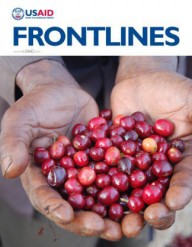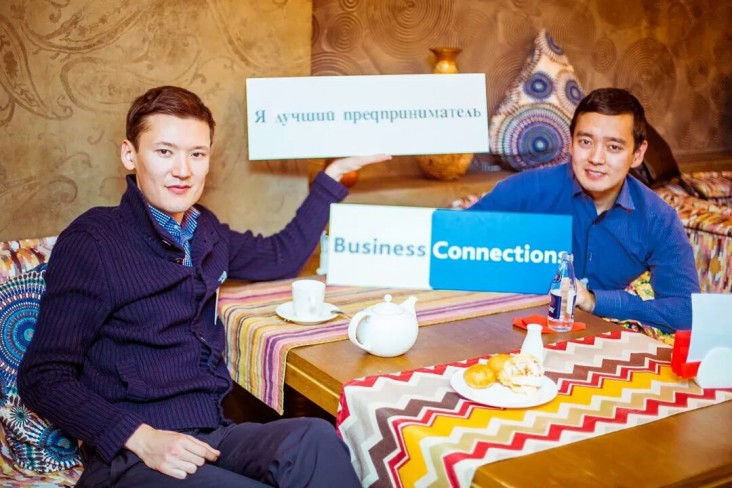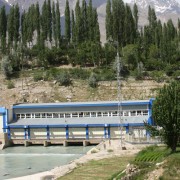 Kazakhstani food processing entrepreneurs visited Kansas State University to improve bakery techniques.
VEGA
Kazakhstani food processing entrepreneurs visited Kansas State University to improve bakery techniques.
VEGA
 Kazakhstani food processing entrepreneurs visited Kansas State University to improve bakery techniques.
VEGA
Kazakhstani food processing entrepreneurs visited Kansas State University to improve bakery techniques.
VEGA
Did you know that North Dakota has climate similar to that of Kazakhstan? And that, as a result, with U.S. assistance, the state’s cattle have served as “mother herds” for Kazakhstani beef farmers striving to restart a struggling industry historically vital to rural jobs?
That’s not the only thing the two countries have in common.
Since Kazakhstan gained independence from the Soviet Union in 1991, its economy has grown to be the largest in Central Asia, largely fueled by the development of its oil and gas resources. However, Kazakhstan continues to struggle with a variety of economic challenges that have their roots in the Soviet era, including an extraction-based economy and a regulatory system that impedes business growth. Poverty remains an issue, and there are significant economic disparities between urban and rural areas and between geographic regions.
Over the past few years, a variety of U.S. Government initiatives have addressed this issue by expanding growing bilateral commercial partnerships. It turns out the two countries have much more in common than shared regional climates. Common economic interests are helping to drive Kazakhstan’s economic diversification and yield greater prosperity for its people—while bolstering America’s economy at home.
Connecting Businesses
One such initiative is USAID’s recently completed Business Connections program, which connects Kazakhstani businesses with prospective American partners. According to Jonathan Addleton, USAID’s regional mission director for Central Asia based in Almaty, the country’s economic hub, “Central Asia traditionally hasn’t been on the radar for American companies. Now we’re opening up direct linkages for both American and Kazakhstani firms, leading to tremendous benefits for both sides.”
Since 2012, the program has enabled more than 160 Kazakhstani entrepreneurs to travel to the United States for training and meetings with dozens of potential partners. So far, this modest program has resulted in nearly $13 million in sales to U.S. firms, a figure set to grow in the future as deals under discussion come to fruition. The Government of Kazakhstan has funded the majority of the program budget and, as a result, American companies have generated $7 in sales for every USAID dollar invested in the program. (See info box.)
Officials believe the United States is an important new market for Kazakhstani firms, beyond established partnerships with Russia and China. “Kazakhstan is the largest landlocked country in the world,” explains Addleton, “and landlocked countries everywhere need as many windows and doors as possible, each of which can be used to expand connections with the rest of the world to bolster their stability and prosperity.”
Such connections lead to business opportunities. According to Akhmet Yermukhanov, a program participant and director of the MIA Group—a Kazakhstani firm that supplies industrial goods to gas, drilling and transportation companies—the “most important thing is finding the right partner. Kazakhstan is still an unknown country to the U.S. Every country that has the ending ‘stan’ is associated with instability.” Oil and gas companies are familiar with the market, he continues, “but many others in the small and mid-sized business community don’t know much about Kazakhstan, even though the country is open for business.”
Creating Markets for American Products
In some areas, American products can’t compete with regional players, including Russia or China, mostly due to costs imposed by distance. However, in other areas, there are natural partnerships to be formed. Business Connections brought together American and Kazakhstani firms across a wide range of industries.
Chad Ford, an associate vice president of the International Executive Service Corps, which teamed up with the Volunteers for Economic Growth Alliance to implement the program, says that “we had bakers looking for the best red velvet cake techniques, dairy production looking for new methods in automation, IT services searching out new app developments and partnerships, and other sectors, all the way to heavy equipment for road construction and transport. The participants represented a true diversity of entrepreneurs.”
Nearly 20 percent of the Kazakhstani program participants confirmed that they’ve signed contracts or reached formal agreements with American partners. So far, the program has helped conclude 26 deals in an array of industry sectors. Iowa-based CemenTech sealed a deal for up to $500,000 in products and services delivered to Kazakh Petroleum, a dealer of industrial heavy machinery. Nebraska-based Norland International signed a deal worth $50,000 with the Almaty-based Comet bottling company. Nevada-based Battery Doctors sold $16,000 worth of battery-extending technologies to the Aktobe-based MIA Group in northern Kazakhstan.
In December 2014, President Nursultan Nazarbayev signed Kazakhstan’s law on development assistance, paving the way for the country to form its own international development agency. The organization, provisionally called KazAID, will fall under the policy leadership of the Ministry of Foreign Affairs, and plans to focus on providing bilateral assistance to Central Asian neighbors, including Afghanistan. USAID has actively supported the emergence of KazAID. Through the jointly funded Program for Economic Development, which funded Business Connections, USAID helped build experience within the Ministry of Foreign Affairs in development assistance. Kazakhstan joins other countries—such as Brazil, Indonesia and South Korea—which have graduated from being aid recipients to aid donors.
The largest single transaction involved the export of WiMAX-based communications stations developed by California-based Pure Wave—now part of Mercury Networks––to Karaganda-based AB Ltd. So far, 150 WiMAX base stations have been delivered in a deal totaling $1.5 million, part of an overall transaction that may eventually grow to 900 stations.
These base stations, which provide Internet connectivity across a wide area, are well suited to sparsely populated areas of Kazakhstan. “Government support on both the American and Kazakhstani sides was important in putting this deal together,” says Peter Carson, COO for Mercury Networks. With Business Connections’ assistance in establishing a foothold in Central Asia, Mercury Networks finalized additional deals in both Kazakhstan and Tajikistan.
The program opened up a new universe of business opportunities for entrepreneurs on both sides, creating connections—often for the first time—between the respective business communities.
Growing a Commercial Partnership
Participants place great value in the face-to-face interactions provided by the program’s business tours. Stepan Vadyunin, CEO of AB Ltd., argues that the program’s focus on “networking opportunities for medium-sized businesses that do not have a wide network of offices around the world” is effective.
“It is easy,” he continues, “to make a secure deal with a company such as with IBM, which has an office in Kazakhstan, but it is practically impossible with other U.S. companies, which have no local representation. Our transaction took place because of participation in the Business Connections program. I’m 100 percent sure, without the program, there would be no contract.”
The impact of the program, which also fostered Kazakhstani participants’ business skills and supported Kazakhstan’s national entrepreneur development fund, is felt far beyond the exchange of goods and services. “I think local businessmen can learn many things from Western businesses, like time management and efficient means of conducting business,” says Yermukhanov. “Some of Kazakhstan’s older business people rely on experiences from the Soviet era rather than the latest business training or education.”
Even when potential deals fall through, benefits remain. Timur Kudaibergenov, an entrepreneur from Astana, hoped to arrange a joint venture with the Curb taxi service, formerly Taxi Magic. Though the conditions weren’t right for the deal, Curb allowed Kudaibergenov to use its booking software for free, which serves as the basis for Kudaibergenov’s new Taxi.kz project.
The nearly $13 million in business transactions that have taken place between Kazakhstani participants in the program and their American partners is predicted by survey data to grow to $30 million over the next five years. In addition, the program has been responsible for generating over 700 Kazakhstani jobs.
With Business Connections, increased commercial partnerships between Kazakhstan and America have not only created new economic opportunities for both countries, they have also helped strengthen the two countries’ political relations.
The engagement of both governments has been critical in giving programs like Business Connections the gravitas necessary to succeed. “The fact that our company was backed by Kazakhstan and American Governments helped our negotiations and the finalization of our contract and showed the seriousness and reliability of Kazakhstan,” said Yuliya Mantrova, who led AB LLP’s business delegation.














Comment
Make a general inquiry or suggest an improvement.